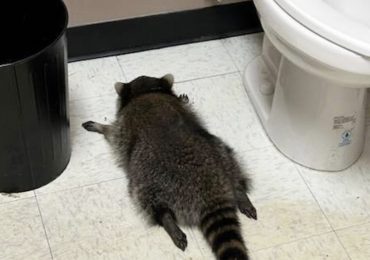We don’t live in a world where sexuality is commonly accepted as something that can change, bend, or even be questioned in private. The cultural presumption, oftentimes, is that people are heterosexual until stated otherwise. And if they are not heterosexual, then they will fit neatly into one of the letters in the LGBTQIA+ acronym for life. It’s an unfortunate bind that can create tension for anyone who doesn’t feel completely aligned with heterosexual or homosexual desires, or who notices that their sexual desires ebb and flow.
[time-brightcove not-tgx=”true”]
Contrary to popular belief, the “Q” in “LGBTQIA+” isn’t just a reference to “queer.” It also calls attention to those of us who are “questioning.” Anyone who isn’t sure how to categorize their sexuality can fall under the umbrella of questioning. In fact, they may struggle with reconciling their desires and attractions with the label under which they primarily identify. This unsureness can stir up anxiety for the person experiencing it as well as potential partners who may want definitive answers before committing to a sexual or romantic relationship with them. Questioning is thought of as a brief stop along the path to “figuring it all out.” It isn’t thought of as “real.”
We don’t know what to do with people who are amid exploring what feels sexually authentic to them. It just feels too messy and confusing. But if we acknowledged the complicated nature of sexuality and how much it varies and changes, we would all have more freedom to explore who our authentic sexual selves are. Questioning is more than just a phase—it’s a practice and identity that is more common than we would like to admit.
There is more to sexual orientation than the binary of being either heterosexual or homosexual. But it wasn’t until the 1948 publishing of Alfred Kinsey’s pivotal work, Sexual Behavior in the Human Male, that there was an accounting for the area that exists between straight and gay. The Kinsey Scale was the first measure of heterosexuality to homosexuality with many gradients in between. Ranging from 0-6, the idea of a sexual orientation scale, or spectrum, allowed for categorizing people over time. A Kinsey “2” score, for instance, alluded to someone who is predominantly heterosexual, and, as the scale called it, “only incidentally homosexual.” The incidentally homosexual term referred to in practice or in feelings or thoughts. The range from 2-5 on the Kinsey Scale is the space where perhaps the most questioning occurs because that’s where there isn’t a completely solid throughline between one’s attractions and sexual partners.
Despite the existence of this range of sexual orientation, we don’t give space to those who are questioning. For people who have been in only heterosexual relationships and want to explore other desires, for instance, it may feel intrusive or wrong to waltz into LGBTQIA+ spaces. On the other hand, people who have not been 100% heterosexual, especially men, may receive judgements from straight partners who feel they could be hiding or repressing their true desires. But sexuality is more complex than that. Our thoughts and behaviors may not always align. People may be drawn to erotica or porn that depicts sex that varies from their own sexual experiences, or have powerful fantasies that are jarring because of the gender of the people involved. People can identify as straight but have romantic crushes on people of the same sex. We may call it “bromance” or a “friend crush,” but that can also someteims have sexual undertones. Or people may label times when they had partners who didn’t match their sexual orientation as “experimenting.” All of these incredibly common experiences show how we would all do better to recognize questioning as valid and helpful for developing a fuller picture of our sexuality.
Questioning isn’t limited to just sexual orientation. It can also include gender identity and gender expression. Over the course of the lifespan, people may experience incongruence between their biological sex and the way they feel internally or how they would like to be seen by others. It may take time to land on a gender identity that rings true, and this could also change as new insights develop and someone’s sense of self develops. With so many ways to describe gender identity and expression, it makes sense that it could take time to understand what makes the most sense for each person.
Questioning can also occur when people contemplate the ways in which they would like to engage in relationships. People may question monogamy or whether they may be asexual or aromantic. They may need to experience different ways of being in relationships to determine what’s right for them. Identifying as questioning can be helpful when dating and engaging in different types of relationships. It signals to potential partners that you’re exploring and do not have fixed ideals about relationships at the moment. This can take the pressure off of dating as a whole, and helps set realistic expectations for people you date. There are so many people who are questioning, but feel pressured to say they’re looking for a long-term relationship or something casual when they really don’t know what will work for them. It’s way better to say at the outset and minimize confusion or hurt feelings.
Read More: Sex Changes as We Age. Let’s Embrace That
The process of questioning is non-linear and can occur throughout a person’s life. After having worked with many questioning clients, I know how important it is to claim questioning as an identity for people doing the deep work of trying to figure out their attractions and relationship needs. I’ve seen my clients embrace saying “I don’t know” rather than get embarrassed or ashamed when they’re asked about what they’re looking for. And I’ve seen them connect with other people who are also questioning, and want support and connection while they discover who they are.
Questioning doesn’t have to be stressful or anxiety-inducing. We naturally question what and who we like, how we want to be treated and what kinds of partnerships and communities we want to build. People who are exploring their sexuality deserve the space to do so, no matter how long it takes or what the outcome is. Because sexuality can change and surprise so many of us, it’s important to recognize questioning as an authentic experience—for others and for ourselves.
Leave a comment








